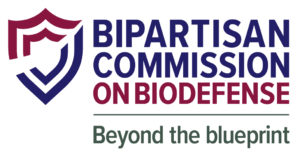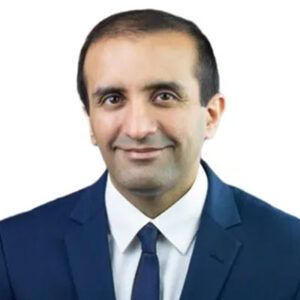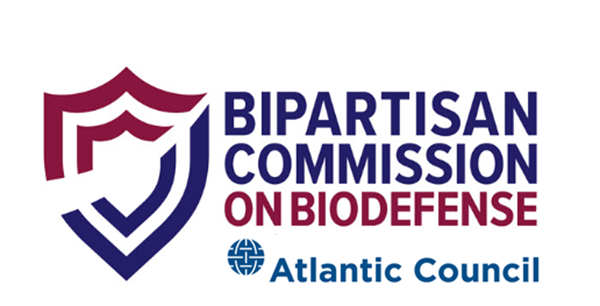Former Head of White House Global Health Security and Biodefense Dr. Raj Panjabi Joins Bipartisan Commission on Biodefense

FOR IMMEDIATE RELEASE
Contact: Steve Aaron
SRA Communications
(717) 554-8614
steve@SRACommunications.com
 Dr. Panjabi, one of TIME’s 100 Most Influential People in the World, joins Commission as Ex Officio member
Dr. Panjabi, one of TIME’s 100 Most Influential People in the World, joins Commission as Ex Officio member
WASHINGTON, D.C. (Nov. 9, 2023) – Dr. Asha M. George, Executive Director of the Bipartisan Commission on Biodefense, today announced that Dr. Raj Panjabi, renowned physician and entrepreneur, has joined the Commission as an Ex Officio member. Dr. Panjabi served in the Biden-Harris Administration from February 2021 to August 2023, most recently as Special Assistant to President Biden and Senior Director for Global Health Security and Biodefense at the White House.
“On behalf of our Co-Chairs Governor Tom Ridge and Senator Joe Lieberman, I am delighted to welcome Dr. Panjabi to our Commission,” said Dr. George. “Dr. Panjabi worked tirelessly to determine and execute federal policy to protect America and the world from real-time, real-world biological threats and lead execution of the U.S. National Biodefense Strategy and the largest global vaccination campaign in history during the fight against COVID-19.”
“Dr. Panjabi has had a front row seat at what it means to prepare for, and respond to, a biological crisis. His perspectives have always been helpful to the Commission, and we look forward continuing to work with him on the increasingly complex biodefense and public health security issues impacting our Nation and the world now.”
Said Dr. Panjabi: “Now more than ever, addressing our most pressing challenges requires that we work together. It requires bipartisan leadership. While serving in the White House, I saw how the Bipartisan Commission on Biodefense played an indispensable role in protecting the country from pandemics and biological threats. I am honored to join the Commission and contribute to this vital work.”
Nationally, Dr. Panjabi played a lead role in implementing the National Biodefense Strategy, American Pandemic Preparedness Plan, President’s Bioeconomy Executive Order, and PREVENT Pandemics Act, laying the foundation for continued work on biodefense by the National Security Council and the new White House Office of Pandemic Preparedness and Response Policy. Globally, Panjabi played a lead role in implementing the U.S. Global Health Security Act, scaling U.S. partnerships with over 50 countries, developing the President’s COVID-19 and health security initiatives with the G7 and G20, and coordinating U.S. policy on the World Bank Pandemic Fund, World Health Organization Pandemic Accord, and the United Nations Biological and Toxin Weapons Convention. Previously, Dr. Panjabi also served as the U.S. Malaria Coordinator where he oversaw U.S. efforts to help launch the world’s first malaria vaccine and create a five-year strategy to help the world prevent 1 billion malaria cases.
About the Bipartisan Commission on Biodefense
The Bipartisan Commission on Biodefense was established in 2014 to conduct a comprehensive assessment of the state of U.S. biodefense efforts, and to issue recommendations to foster change. The Commission’s 2015 report, A National Blueprint for Biodefense: Leadership and Major Reform Needed to Optimize Efforts, identified capability gaps and recommended changes to U.S. policy and law to strengthen national biodefense while optimizing resource investments. Subsequent Commission publications have addressed critical needs for an Apollo Program for Biodefense, biological risk reduction, biodetection, agrodefense and the role of the land-grant universities, budget reform, diagnostics, critical infrastructure, and State, Local, Tribal and Territorial response capabilities. In 2018 and 2022, the White House released the National Biodefense Strategy, a top recommendation from the Blueprint, and in 2021 released the American Pandemic Preparedness Plan, taking up many of the recommendations from the Commission’s Apollo Program and Athena Agenda reports. The Commission continues to address biodefense challenges and to urge reform. Former Senator Joe Lieberman and Governor Tom Ridge co-chair the Commission. Hudson Institute is the Commission’s fiscal sponsor.
